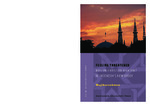Feeling Threatened
Muslim-Christian Relations in Indonesia's New Order
| dc.contributor.author | Mujiburrahman, | |
| dc.date.accessioned | 2010-12-31 23:55:55 | |
| dc.date.accessioned | 2019-12-10 14:46:32 | |
| dc.date.accessioned | 2020-04-01T15:35:53Z | |
| dc.date.available | 2020-04-01T15:35:53Z | |
| dc.date.issued | 2006 | |
| dc.identifier | 340139 | |
| dc.identifier | OCN: 85821965 | en_US |
| dc.identifier.uri | http://library.oapen.org/handle/20.500.12657/35196 | |
| dc.description.abstract | Muslim-Christian relations were an important element of the social and political dynamics of Indonesia and an ever-sensitive subject of government policy during the New Order period (1966-1998). Tense relations and mutual suspicions between Indonesia's Muslim majority and its significant Christian minority were reflected in Christian fear of Muslim efforts to turn the country into an Islamic state and Muslim anxieties about domestic Christian missionary activities. At first the regime made heavyhanded efforts to contain inter-religious conflict, but its attitude towards vocal Muslim groups shifted from suppression to accommodation. State and private institutions organized talks between the two communities, but they proved ineffective at improving Muslim-Christian relations. These socio-political developments in turn contributed to violence coloured by Islamic and Christian sentiments after the fall of the regime. | |
| dc.language | English | |
| dc.relation.ispartofseries | ISIM Dissertations | |
| dc.subject.classification | thema EDItEUR::P Mathematics and Science::PD Science: general issues | en_US |
| dc.subject.other | wetenschap algemeen | |
| dc.subject.other | popular science | |
| dc.title | Feeling Threatened | |
| dc.title.alternative | Muslim-Christian Relations in Indonesia's New Order | |
| dc.type | book | |
| oapen.abstract.otherlanguage | Gespannen verhoudingen en wederzijdse achterdocht tussen Indonesiës moslimmeerderheid en de belangrijke christelijke minderheid vormen de achtergrond waartegen Soeharto's Nieuwe Orde (1966-1998) zich ontvouwde. De vrees van christenen over pogingen het land tot een islamitische staat te maken en de bezorgdheid van moslims over inspanningen tot kerstening hadden een grote invloed op de politieke ontwikkelingen in deze periode, en droegen bij tot de uitbarsting van religieuspolitieke conflicten na de val van Soeharto. Het bewind poogde met harde hand de conflicten tussen religieuze groepen binnen de perken te houden, maar zijn houding tegenover de moslimoppositie veranderde geleidelijk van onderdrukking naar coöptatie. Deze studie behandelt deze kwesties op basis van een grote hoeveelheid bronnenmateriaal en interviews met leidende personen uit beide gemeenschappen. | |
| oapen.identifier.doi | 10.5117/9789053569382 | |
| oapen.relation.isPublishedBy | dd3d1a33-0ac2-4cfe-a101-355ae1bd857a | |
| oapen.series.number | 3 | |
| oapen.pages | 428 |

